Lexus LBX vs Land Rover Range Rover Evoque - Differences and prices compared
Compare performance (136 HP vs 269 HP), boot space and price (28300 £ vs 43300 £ ) at a glance. Find out which car is the better choice for you – Lexus LBX or Land Rover Range Rover Evoque?
Costs and Efficiency:
When it comes to price and running costs, the biggest differences usually appear. This is often where you see which car fits your budget better in the long run.
Lexus LBX has a significantly advantage in terms of price – it starts at 28300 £ , while the Land Rover Range Rover Evoque costs 43300 £ . That’s a price difference of around 15008 £.
Fuel consumption also shows a difference: Land Rover Range Rover Evoque manages with 3.70 L and is therefore clearly perceptible more efficient than the Lexus LBX with 4.50 L. The difference is about 0.80 L per 100 km.
Engine and Performance:
Under the bonnet, it becomes clear which model is tuned for sportiness and which one takes the lead when you hit the accelerator.
When it comes to engine power, the Land Rover Range Rover Evoque has a clearly edge – offering 269 HP compared to 136 HP. That’s roughly 133 HP more horsepower.
In acceleration from 0 to 100 km/h, the Land Rover Range Rover Evoque is noticeable quicker – completing the sprint in 7.20 s, while the Lexus LBX takes 9.20 s. That’s about 2 s faster.
In terms of top speed, the Land Rover Range Rover Evoque performs clearly perceptible better – reaching 213 km/h, while the Lexus LBX tops out at 170 km/h. The difference is around 43 km/h.
There’s also a difference in torque: Land Rover Range Rover Evoque pulls convincingly stronger with 540 Nm compared to 185 Nm. That’s about 355 Nm difference.
Space and Everyday Use:
Beyond pure performance, interior space and usability matter most in daily life. This is where you see which car is more practical and versatile.
Both vehicles offer seating for 5 people.
In curb weight, Lexus LBX is evident lighter – 1280 kg compared to 1792 kg. The difference is around 512 kg.
In terms of boot space, the Land Rover Range Rover Evoque offers noticeable more room – 472 L compared to 332 L. That’s a difference of about 140 L.
In maximum load capacity, the Land Rover Range Rover Evoque performs a bit better – up to 1156 L, which is about 162 L more than the Lexus LBX.
When it comes to payload, Land Rover Range Rover Evoque noticeable takes the win – 600 kg compared to 475 kg. That’s a difference of about 125 kg.
Who wins the race in the data check?
The Land Rover Range Rover Evoque holds a decisive overall lead in the objective data comparison.
This result only shows which model scores more points on paper – not which of the two cars feels right for you.
Costs and Consumption
View detailed analysis
Engine and Performance
View detailed analysis
Dimensions and Body
View detailed analysis
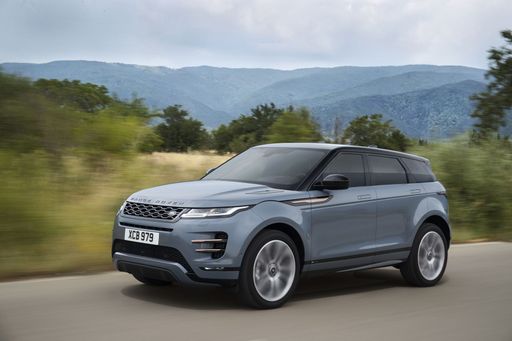
Land Rover Range Rover Evoque
Lexus LBX
The Lexus LBX wraps premium touches and a surprisingly spacious cabin into a compact crossover that’s perfectly at home in town or heading out on longer drives. It wears the badge with quiet confidence, serving up a refined ride and clever packaging for buyers who want Lexus polish without shouting for attention.
details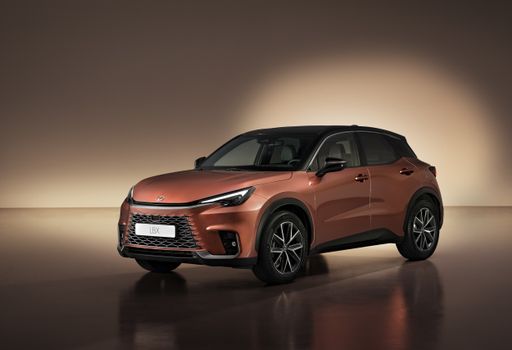
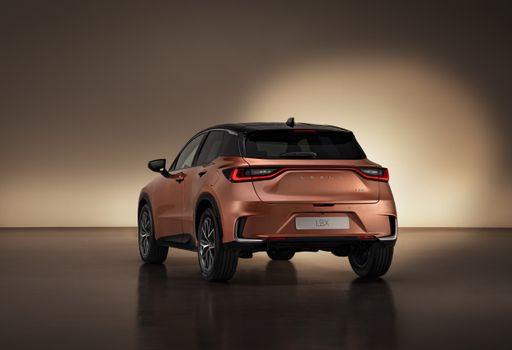
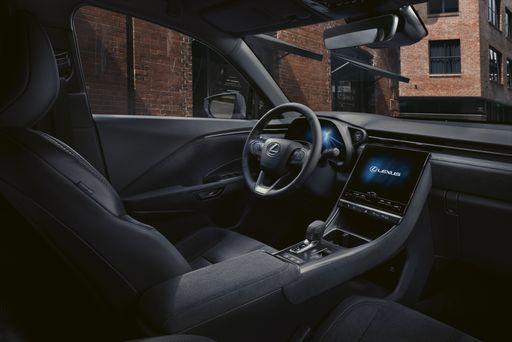
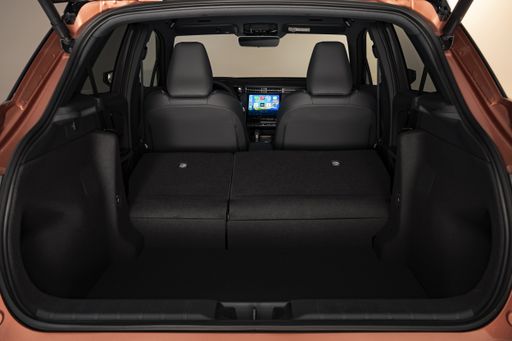
Land Rover Range Rover Evoque
The Range Rover Evoque turns heads with a compact, sculpted silhouette and an interior that feels more boutique hotel than utility vehicle. It delivers composed, playful handling around town while keeping enough ruggedness for weekend escapes — perfect for buyers who want luxury without the ostentation.
details
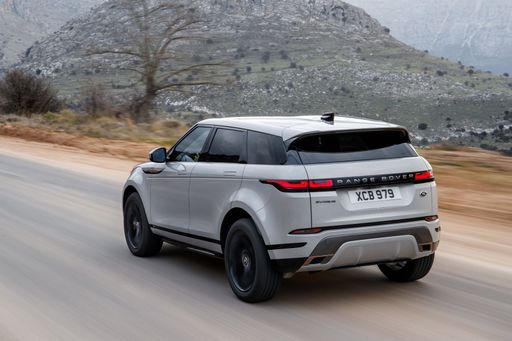
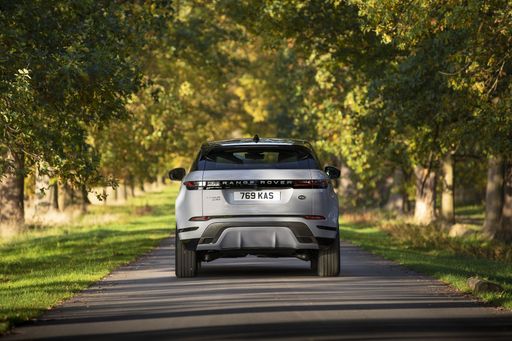
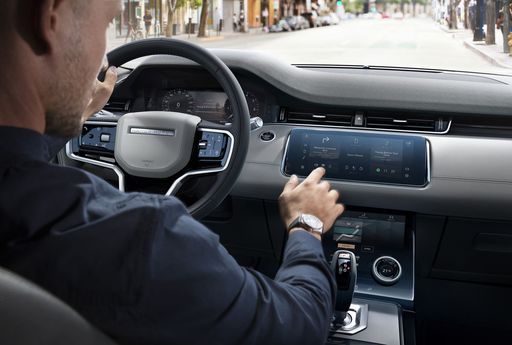
Costs and Consumption |
|
|---|---|
|
Price
28300 - 40000 £
|
Price
43300 - 64800 £
|
|
Consumption L/100km
4.5 - 4.8 L
|
Consumption L/100km
3.7 - 7.8 L
|
|
Consumption kWh/100km
-
|
Consumption kWh/100km
-
|
|
Electric Range
-
|
Electric Range
60 km
|
|
Battery Capacity
-
|
Battery Capacity
11.50 kWh
|
|
co2
102 - 110 g/km
|
co2
85 - 177 g/km
|
|
Fuel tank capacity
36 L
|
Fuel tank capacity
57 - 67 L
|
Dimensions and Body |
|
|---|---|
|
Body Type
SUV
|
Body Type
SUV
|
|
Seats
5
|
Seats
5
|
|
Doors
5
|
Doors
5
|
|
Curb weight
1280 - 1365 kg
|
Curb weight
1792 - 2157 kg
|
|
Trunk capacity
255 - 332 L
|
Trunk capacity
472 L
|
|
Length
4190 mm
|
Length
4371 mm
|
|
Width
1825 mm
|
Width
1900 mm
|
|
Height
1560 mm
|
Height
1649 mm
|
|
Max trunk capacity
992 - 994 L
|
Max trunk capacity
1156 L
|
|
Payload
455 - 475 kg
|
Payload
503 - 600 kg
|
Engine and Performance |
|
|---|---|
|
Engine Type
Full Hybrid
|
Engine Type
Petrol MHEV, Diesel MHEV, Plugin Hybrid
|
|
Transmission
Automatic
|
Transmission
Manuel, Automatic
|
|
Transmission Detail
CVT
|
Transmission Detail
Manual Gearbox, Automatic Gearbox
|
|
Drive Type
Front-Wheel Drive, All-Wheel Drive
|
Drive Type
Front-Wheel Drive, All-Wheel Drive
|
|
Power HP
136 HP
|
Power HP
160 - 269 HP
|
|
Acceleration 0-100km/h
9.2 - 9.6 s
|
Acceleration 0-100km/h
7.2 - 10.3 s
|
|
Max Speed
170 km/h
|
Max Speed
190 - 213 km/h
|
|
Torque
185 Nm
|
Torque
260 - 540 Nm
|
|
Number of Cylinders
3
|
Number of Cylinders
3 - 4
|
|
Power kW
100 kW
|
Power kW
118 - 198 kW
|
|
Engine capacity
1490 cm3
|
Engine capacity
1498 - 1998 cm3
|
General |
|
|---|---|
|
Model Year
2025
|
Model Year
2025
|
|
CO2 Efficiency Class
C
|
CO2 Efficiency Class
G, F, B
|
|
Brand
Lexus
|
Brand
Land Rover
|
What drivetrain options does the Lexus LBX have?
Available configurations include Front-Wheel Drive or All-Wheel Drive.




